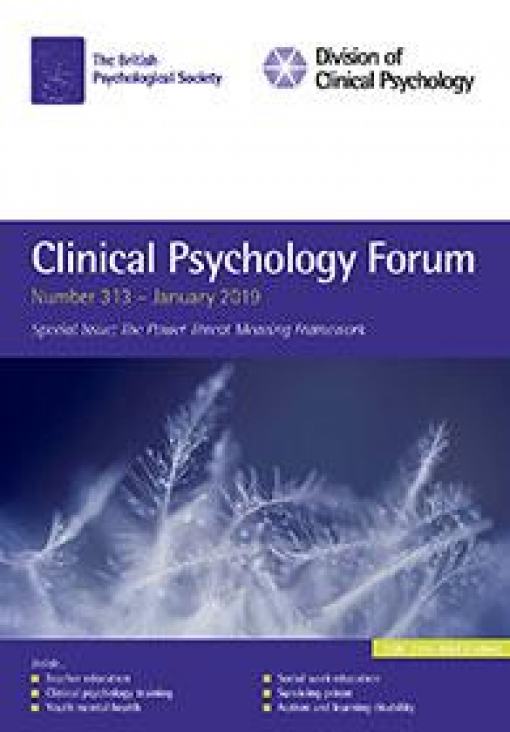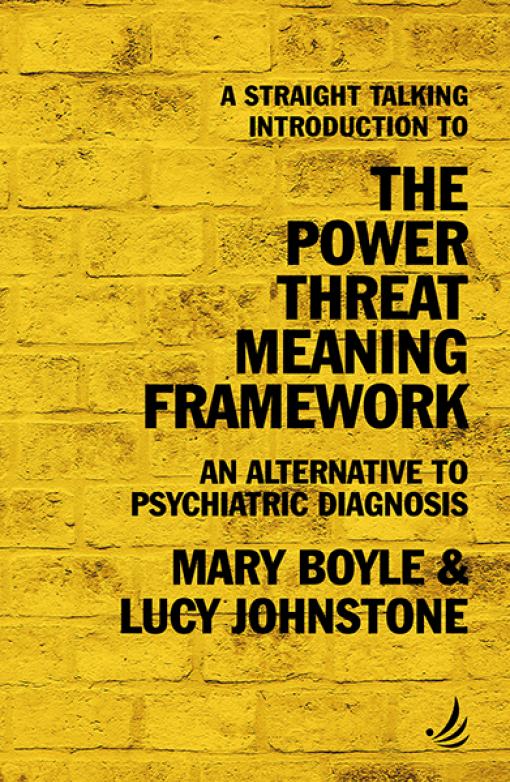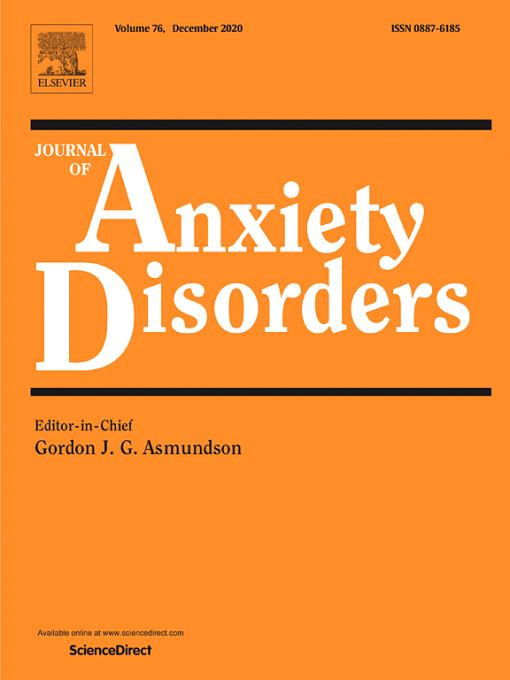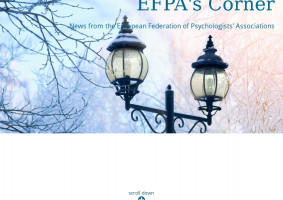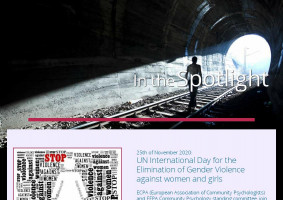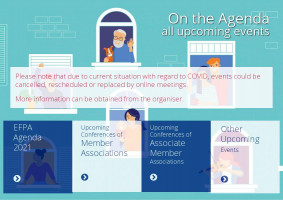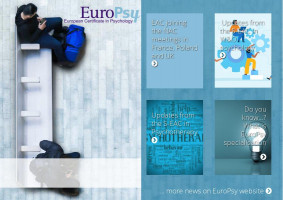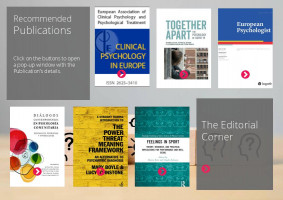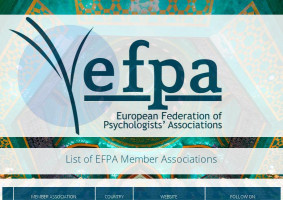Reflecting on Psychotherapy Practice for Psychologists:
Towards Guidelines for Competencies and Practices
Published in PsychOpen, the Journal Clinical Psychology in Europe
Authors and members of EFPA working groups, SEAC and Executive Council:
- Anne Plantade-Gipch School of Practitioners Psychologists, Paris, France Nady Van Broeck University of Leuven, Leuven, Belgium
- Koen Lowet Flemish Association of Clinical Psychologists, Beringen, Belgium
- Eleni Karayianni University of Cyprus, Nicosia, Cyprus
- Maria Karekla University of Cyprus, Nicosia, Cyprus
Abstract
In 2017, the European Federation of Psychologists Associations (EFPA) made a statement on psychotherapy. It recognizes that psychotherapy is a “special competence” practiced by psychologists, and that psychologists practicing psychotherapy receive specific education, including supervision. The statement also stresses that they have demonstrated competencies in scientifically validated or established theories on human emotions, cognitions, and behavior, and on processes of development, as well as the application of these methods to achieve change. Moreover, the declaration recognizes that they are trained in the scientific application of the methods of change based upon these theories.
Within the Standing Committee of Psychology and Health in collaboration with the S-EAC, the group on Psychotherapy is presently working on a conceptual framework and on guidelines for psychotherapy practiced by psychologists.
This document is starting to define the necessary skills and competencies for European psychologists practicing psychotherapy. It also makes recommendations for basic training, for the development of practical skills and competencies, for continuing professional development, and for ethical decision making. It especially puts forward psychologists’ scientific approach to psychotherapy.
Starting from the premise that an effective response to the pandemic depends upon people coming together and supporting each other as members of a common community, the aim of this book is to use social identity theorising to provide a comprehensive and integrated analysis of the psychology of COVID-19.

Volume 25, no. 4 is now available online
Editorial
European Psychologist’s 25th Anniversary - Developments and Perspectives
Special Section
Toward a Better Understanding and Evidence-Based Intervention for Early Trauma Responses
Special Section: Original Articles and Reviews
Original Articles and Reviews
The Distinctive Constitution of Feeling Hurt - A Review and a Lazarian Theory
Libro que reúne algunos de los trabajos presentados en la 7ª Conferencia Internacional de Psicología Comunitaria, realizada en Santiago de Chile el año 2018, donde se comparten valiosos entramados teóricos y prácticos que configuraron un intercambio de experiencias y perspectivas en torno a los siguientes ejes: Lo ético y lo político en el trabajo con comunidades; Políticas Públicas y Psicología Comunitaria; Salud mental y Psicología Comunitaria; Psicología Comunitaria y exclusión social; Formación profesional, ética y Psicología Comunitaria.
Book that brings together some of the works presented at the 7th International Conference on Community Psychology, held in Santiago de Chile in 2018, where valuable theoretical and practical frameworks are shared that configured an exchange of experiences and perspectives around the following axes: ethics and politics in working with communities; Public Policies and Community Psychology; Mental Health and Community Psychology; Community Psychology and social exclusion; Professional training, ethics and Community Psychology.
A Straight Talking Introduction To The Power Threat Meaning Framework: An Alternative To Psychiatric Diagnosis
ISBN 9781910919712
Author: Mary Boyle, Lucy Johnstone
The current mainstream way of describing psychological and emotional distress assumes it is the result of medical illnesses that need diagnosing and treating. This book summarises a powerful alternative to psychiatric diagnosis that asks not ‘What’s wrong with you?’ but ‘What’s happened to you?’
The Power Threat Meaning Framework (PTMF) was co-produced by a core group of psychologists and service users and launched in 2018, prompting considerable interest in the UK and worldwide. It argues that emotional distress, unusual experiences and many forms of troubled or troubling behaviour are understandable when viewed in the context of a person’s life and circumstances, the cultural and social norms we are expected to live up to and the degree to which we are exposed to trauma, abuse, injustice and inequality.
The PTMF offers all of us the tools to create new, hopeful narratives about the reasons for our distress that are not based on psychiatric diagnosis and find ways forward as individuals, families, social groups and whole societies.
Feelings in Sport
Theory, Research, and Practical Implications for Performance and Well-being
By Montse C. Ruiz, Claudio Robazza
1st Edition
The Editorial Corner
Articles in this edition:
Youth Mental Health and the Power Threat Meaning Framework: Jigsaw's systems perspective Cian Aherne, Olive Moloney & Gillian O'Brien
Reflections on using the Power Threat Meaning Framework in peer-led systems Amanda Griffiths
Time to teach the politics of mental health: Implications of the Power Threat Meaning Framework for teacher education Catriona O'Toole Bringing the outside in: Clinical psychology training in socially aware assessment, formulation, intervention and service structure Helen Griffiths & Frances Baty
Surviving prison: Using the Power Threat Meaning Framework to explore the impact of long-term imprisonment Mariana Reis, Sami Dinelli & Lucinda Elias
Using the Power Threat Meaning Framework in social work education Rachel Fyson, Kirsten Morley & Andrew Murphy
The 'Own my life' course: Building literacy with women about trauma through the Power Threat Meaning Framework Natalie Collins
Incorporating the Power Threat Meaning Framework into an autism and learning disability team Alison Flynn & Nechama Polak
Reflections on responses to the Power Threat Meaning Framework one year on Lucy Johnstone, Mary Boyle, John Cromby, Jacqui Dillon, Dave Harper, Peter Kinderman, Eleanor Longden, David Pilgrim & John Read. This article can be downloaded here
Mary Boyle and Lucy Johnstone’s, A Straight-Talking Introduction To The Power Threat Meaning Framework: An Alternative To Psychiatric Diagnosis was published at the end of 2020, some two years after the original Power Threat Meaning Framework (PTMF) came out in 2018. It was commissioned by the Division of Clinical Psychology of the British Psychological Society to develop the conversation about how we might conceptualise mental distress away from the categories that are the focus of such works as the much-criticised Diagnostic and Statistical Manual of the American Psychiatric Association (DSM V).
The new book is well written and accessible and is part of a series called Straight-Talking Introductions – also recommended reading.
Climate change is occurring at an accelerating rate, with potentially devastating consequences in the coming years. Climate change will bring an increase in the frequency of natural disasters (e.g., floods, wildfires, desertification) and a rising number of people afflicted and displaced by such disasters, resulting in an increase in the prevalence of refugees and other trauma-exposed individuals. In the coming years, climate change will have a major impact on human well-being on all levels and on a global scale, including a rise in trauma-related psychopathology (e.g., posttraumatic stress disorder) and an increase in other forms of anxiety-related psychopathology (e.g., pervasive worry about the threat of disasters). Numerous other psychological problems are also likely to increase, and the psychological impact of climate change is likely to be varied, complex, and diverse.
_w544_h554_1.png)
